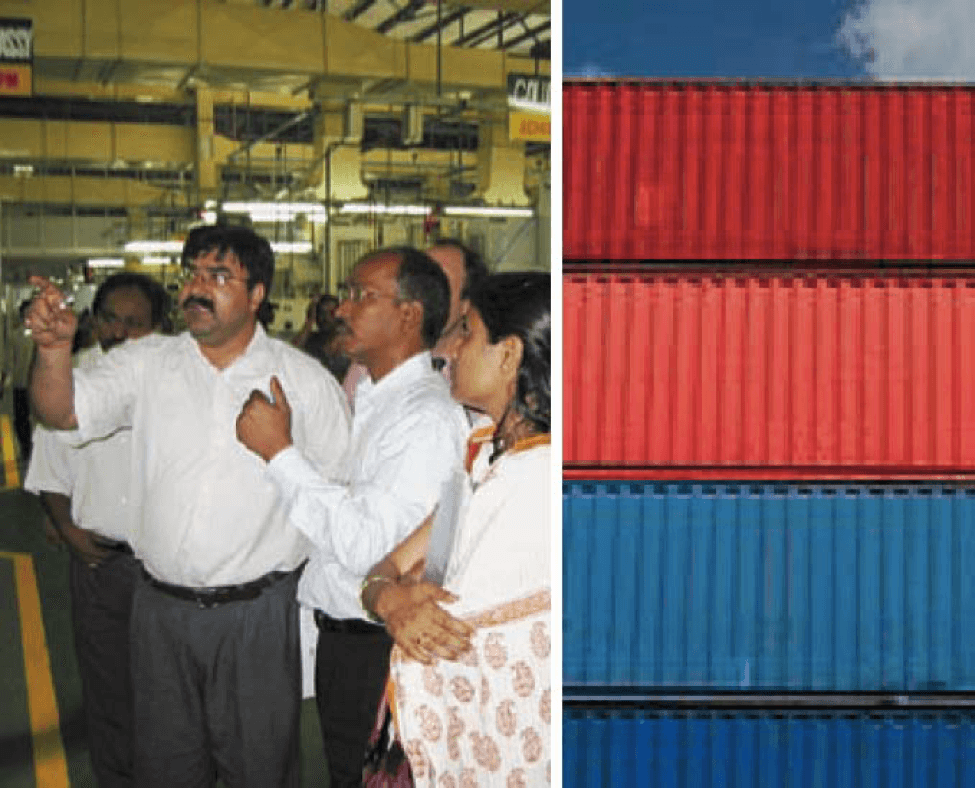The Philippines is a regional leader in terms of establishing legal frameworks that protect the environment. Laws related to sustainable consumption and production (SCP) in the country include the Clean Air Act, Ecological Solid Waste Management Act, Clean Water Act, Biofuels Act and the Renewable Energy Act. Because SCP is a cross cutting issue, the implementation of SCP has remained challenging. The main objective of this EU-SWITCH project has been to support the government in implementing SCP related policy instruments including SCP related laws.
This project aimed to promote SCP in the country (i.e. environmentally and socially equitable development decoupling growth from resource use and pollution) and strengthen national and regional policy frameworks to promote the shift towards more SCP patterns and resource efficiency. ASSIST provided project management, visibility, communications, capacity building and technical assistance to the Department of Energy and other relevant agencies on renewable energy, energy efficiency and green procurement. ASSIST supported the development of an Energy Efficiency Roadmap, the DTI Green Public Procurement Action Plan, Life Cycle Assessment and a National Energy Efficiency Action Plan for the Philippines.

The CII ITC Centre of Excellence for Sustainable Development (CII CESD) started “Corporate Sustainability Management in Indian Companies” – CoSMIC, an initiative to promote Corporate Sustainability Management (CSM) countrywide and across all sectors in association with GIZ.
The 3CS course, conceived as a part of the CoSMIC program, provides a comprehensive overview of business risks and opportunities, tools to use and strategic questions to consider when developing a Corporate Climate Change Strategy.
In the 1st phase of the CoSMIC project, actual training was used to educate companies. ASSIST, as a partner in the project, developed the content for training sessions including training manuals, campaign materials, references and best practice handbooks. In the 2nd phase of the project, the training was converted into e-learning modules for global outreach. The e-learning modules were uploaded in GIZ’s e-academy portal for public usage. All of the modules were SCORM Compliant to make them compliant with different platforms.
ProGED – Promotion of Green Economic Development is an initiative with the objective of helping micro, small and medium enterprises, as well as government institutions contribute to the economic development, increase awareness and gain knowledge on how to implement environmentally friendly, “climate-smart” and inclusive strategies in the tourism sector of the Philippines.
Funded by GIZ, ProGED focused on the tourism sector due to its high potential for investment and employment. ASSIST performed a series of training on Green Economic Development (GED); conducted a technical session on “Greening MSME Operations”; delivered two training modules: ‘Greening Strategies and Quantitative Benefits’ and ‘Consumption and Cost Monitoring’ and; provided experts and consultations for training delivery.
Current patterns of energy consumption will lead to increased demand for thermal energy by almost 700% by 2050 when compared to 2005 levels. At the same time, the number of buildings is expected to manifold by 40% which contribute significantly to the increased energy usage. In order to minimize the energy use, we need to maximize the savings by implementing a sustainable Building Management System (BMS) in buildings, which will better manage as well as improve energy usage and performance, through the use of hardware, information, and data.
To achieve these objectives, the project focuses on creating awareness among business owners and decision makers about the importance of sustainable BMS implementation; attempts to enhance capacity among local facility technicians through establishment of state-of-the-art BMS training facility and up-skilling through targeted trainings; and implements pilots as showcases for sustainable BMS at prominent buildings in varied sectors to strengthen awareness.
Currently, CII-GBC, the home of Indian Green Building Council (IGBC) hosts one pilot solution while another IT company in Chennai called Aspire Systems hosts the second pilot – exhibiting significant savings and GHG reduction through a strong BMS solution. Furthermore, the training centre has been established at and in partnership with Dr. Ambedkar Institute of Productivity (AIP) – National Productivity Council (NPC), Chennai, a prestigious central government institute under the Ministry of Industry & Commerce, Government of India – paving way for practical learning, sustained operations and affordable up-skilling among technicians.
The Indonesian manufacturing sector is one of the nation’s largest sources of fossil-fuel derived greenhouse gas (GHG) emissions. Overall, manufacturing is responsible for over 50 percent of Indonesia’s fossil-fuel emissions (including electricity use within manufacturing) and is continuing to grow at the rate of 6–7 % each year. Most of these sub-sectors are key to the current or future Indonesian economy as measured by a variety of statistics including their value added (textile, garments, transportation equipment, food and beverage), annual growth rate (auto parts, non-metallic minerals) and economic multipliers (food and beverage, textiles).
Jointly funded and implemented by PT TÜV NORD I and DEG, “LEAP – Leapfrog towards Efficiency And Progress through Low Carbon Economy in Indonesia” aimed to reduce GHG emissions in the major industries of the manufacturing sector, achieve energy and material efficiency among participating companies and contribute to poverty reduction by minimizing the impacts of climate change and promoting sustainable development. The project worked towards initiating a low carbon economy in Indonesia through awareness raising and capacity building activities.
The project has reached a number of milestones upon its culmination. It successfully raised awareness on climate change-related topics in the public and private sectors, generated interest among local companies to adopt energy management systems benchmarking ISO 14064 and ISO 50001 (towards reducing their GHG emissions and contribute to the switch towards a low–carbon economy), build local capacity through Training of Trainer Workshops, development of an e-learning kit, e-newsletter, web portal and Best Practices Exchange Forum. Fifteen selected companies also received technical assistance in the form of energy audits and assessment conducted by local trainers and technical experts.


